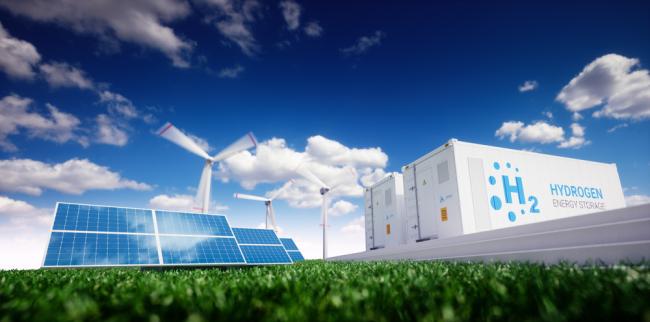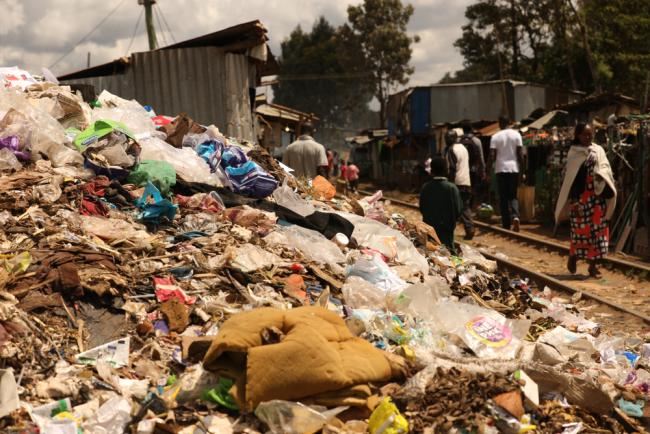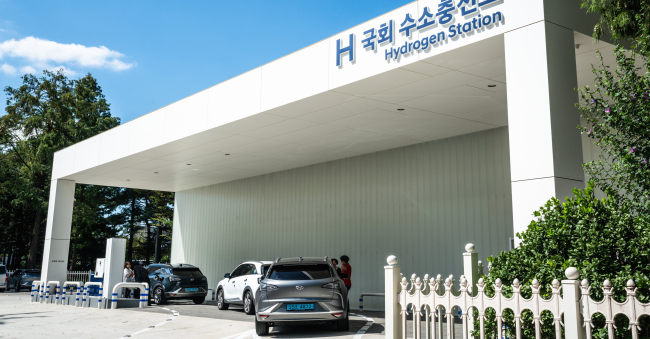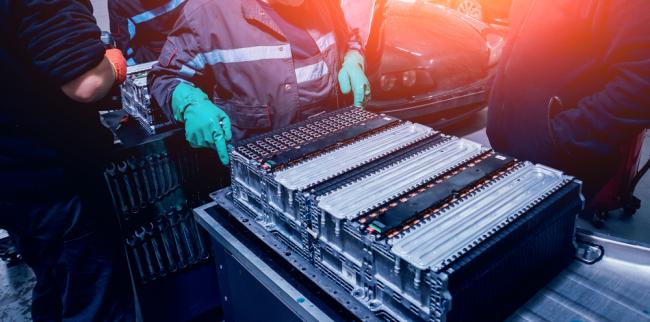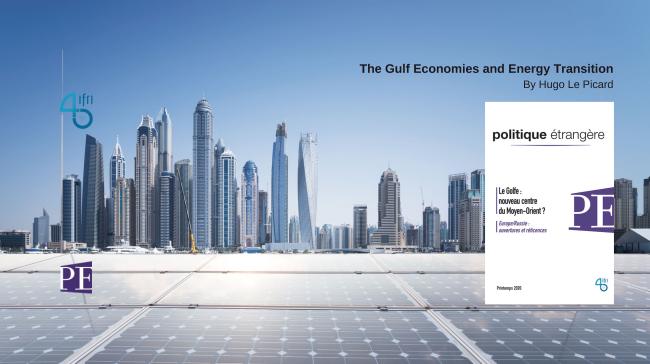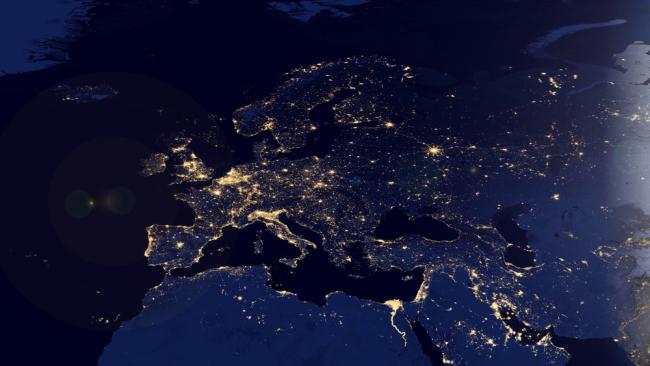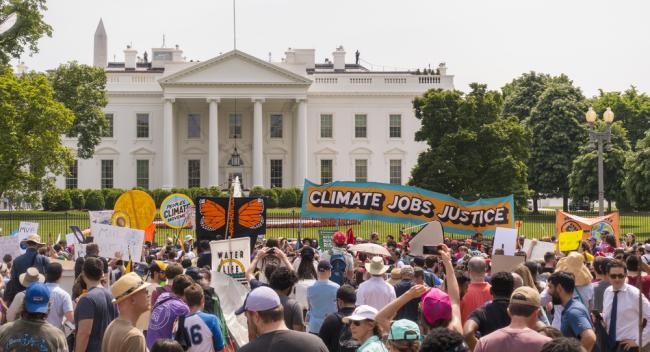Energy - Climate
In the face of the climate emergency and geopolitical confrontations, how can we reconcile security of supply, competitiveness, accessibility, decarbonization and acceptability? What policies are needed?
Related Subjects

COP30: An Inflection Point for Climate Action and Governance

The 30th Conference of the Parties (COP30), opening in Belém, Brazil, on November 10th 2025, convenes at a perilous moment.
Perspectives on a Hydrogen Strategy for the European Union
There is now a wide understanding that larger use of clean hydrogen in future can be an important mean to achieve decarbonisation of the European economy.
Accelerating the Energy Transition: The Role of Green Finance and its Challenges for Europe
Green finance has been a burgeoning sector since the Paris Agreement and is at the crossroads of financial, socio-economic and environmental challenges. It is hybrid in nature: it uses financial instruments and focuses on environmental issues, while coming under the wider field of so-called “sustainable” finance that assumes a broader approach with the inclusion of socio-economic and governance challenges. It is a catalyst as it facilitates and accelerates the transition to a low-carbon economy. It also includes an increasing range of instruments. From green bonds to green indices, green loans and capital raising activities, the sector is growing both quantitatively and qualitatively. So-called “green” issuance debt alone increased fivefold in nearly three years to reach US $ 257 billion in 2019, emphasizing its on-going innovation and attractiveness.
Green finance embraces the various objectives of public and private actors. It also raises major questions about the future of our societies: choosing to finance only sectors that are already “green” entails significant socio-economic risks, such as job losses in high-emitting (brown) sectors and stranded assets. Adopting a sequenced approach potentially amounts to locking in polluting activities in the long term and not achieving the Paris Climate Agreement’s objectives (lock-in effect).
In view of the physical risks of climate change (devastation and disasters) and those related to energy transition (stranded assets), climate change is now generally considered as a systematic risk. Public and private actors– institutional investors, banks, regulators, central banks, insurers, credit rating agencies, states, multilateral organizations – are taking action both to better understand the risks posed by climate change, and to capitalize on opportunities in this growing field. Green finance provides the financial sector with instruments to effectively reorient capital towards the low-carbon transition. Against a background of uncertainty about the effects of climate change,[1] green finance also reduces the information asymmetry about risks related to major ecosystem disruptions. The structuring and distribution of “green” products are important growth drivers for many stakeholders and in a wide variety of sectors.
However, many risks and challenges remain: financial risks, specifically related to high levels of subsidies for the production and use of fossil fuels, and the lack of a single carbon price; structural risks, which hamper the economic attractiveness of sustainable activities, particularly in terms of profitability; and unclear political signals, notably resulting in regulatory uncertainty. Furthermore, the language of green finance remains fragmented and is still relatively vague: there are many reporting frameworks and taxonomies, preventing easy and uniform ownership by stakeholders. Standardized methodologies, requirements and disclosures are critically needed. A common language is required, not only among Europeans but worldwide, to ensure that financing the ecological transition is genuinely effective.
The quality and comparability of non-financial reporting must be significantly improved to ensure its effectiveness. The principle of double materiality of information – financial and non-financial – is crucial. Green finance provides the entire financial system with instruments to accomplish its transition. It also avoids both a “niche” and a lax approach that are conducive to greenwashing and damaging to the sector growth, and, ultimately, to the transitional objective of green finance. As a source of systemic risk, and in view of the challenges of financing the transition, the aim is to ensure that the concept of sustainable finance remains purposeful by integrating environmental, social and governance (ESG) “filters” into the overall operation of capital markets.
There are many risks of intentional or unintentional greenwashing for market actors: making wrong investment choices, because they are ill-informed about the real nature of sustainability; seeing their reputation discredited in their clients and fund managers’ eyes; undermining trust and the fundamentals of green finance.
The European Union (EU) has taken the lead on these issues. The European Commission’s (EC) Action Plan on Financing Sustainable Growth of March 2018 aims to reorient capital flows towards a more sustainable economy, integrate sustainability into financial institutions’ risk management and promote transparency and long-term awareness within financial institutions. This Action Plan includes numerous instruments, such as an Ecolabel for financial products, the development of a European standard for green bonds, a so-called “Disclosure” regulation legislating on non-financial reporting by market actors, and the clarification of banking and investment advisors’ duties in terms of integrating ESG factors and incorporating sustainability into prudential requirements for banks and insurers. One of the main instruments is the European “taxonomy” for sustainable economic activities, which is intended to establish a common language for greening the financial sector by covering a wide range of actors and activities, at least on a voluntary basis. This future taxonomy has major global potential that could boost the EU’s normative power. Consequently, these challenges are now the focus of the G20 and its Financial Stability Board (FSB), and that of the United Nations.
The EU’s sustainable finance strategy is over the long term, striving to take as comprehensive a view as possible of financial regulation and climate change, and therefore fully redirect capital flows towards financing the transition. The next few months will be critical for the future of the sector, with work continuing on the European taxonomy, the preparation of delegated acts subsequent to the final recommendations prepared by the EU’s Technical Expert Group on Sustainable Finance (TEG), and the implementation of the European Green Deal.
[1]. “Scientific Uncertainty”, Nature Climate Change, Vol. 9, No. 797, October 29, 2019, available at: www.nature.com; M. L. Weitzman, “Fat-Tailed Uncertainty in the Economics of Catastrophic Climate Change”, Review of Environmental Economics and Policy, Vol. 5, No. 2, 2011, pp. 275-292, available at: https://doi.org.
Contribution to the Task Force Sustainable Energy, Water and Food Systems of T20 Saudi Arabia
Waste-to-energy plants appear as an effective means of dealing with two problems of electricity access and waste management at once.
South Korea’s Hydrogen Strategy and Industrial Perspectives
South Korea is a hydrogen (H2) frontrunner. The world’s first commercial fuel cell electric vehicle (FCEV) was launched by the South Korean car manufacturer Hyundai (Tucson i×35) in 2013.
POSCO Energy, South Korea’s largest private energy producer, completed the world’s largest fuel cell manufacturing plant in 2015. When President Moon took office in 2018, the new government identified H2 as a new growth engine, and pledged to turn the country into a H2 economy.
The Recycling of Lithium-Ion Batteries: A Strategic Pillar for the European Battery Alliance
Although it is still marginal, the market for electric vehicles (EVs) is growing. According to the French Institute of Petroleum and Renewable Energies (IFPEN, Institut Français du Pétrole et des Énergies Renouvelables), EVs accounted for a little more than 2% of the light vehicle market in 2019. This was up by 54% compared to 2018, but EVs still only represent 0.8% of the global car fleet. That said, the International Energy Agency (IEA) estimates EVs could make up between 15% and 30% of vehicle sales in 2030.
The Gulf Economies and Energy Transition
The economies of the Persian Gulf are highly dependent on their petrol exports, particularly to Asia.
The Geopolitics of the Amazon
An irreplaceable reservoir of biodiversity and freshwater, the Amazon basin has become extremely important in this age of climate disruption.
The Green Deal’s External Dimension. Re-Engaging with Neighbors to Avoid Carbon Walls
The European Union (EU)’s Green Deal is a game changer with attention so far focused on forthcoming actions plans, the Climate Law, financial resources, the revision of the 2030 targets and of the emissions trading system (ETS).
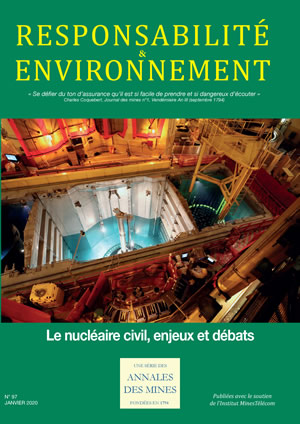
Civilian nuclear energy’s strategic dimension
French stakeholders in civilian nuclear energy are making a full diagnosis of the industry in order to cope with disappointments and lay down the conditions for relaunching programs for building reactors.
The Battle Heats Up: Climate Issues in the 2020 US Presidential Election
Environmental issues have frequently enjoyed bipartisan support in American history: the Clean Air Act was enacted in 1963 under Democratic President Johnson, and the Environmental Protection Agency (EPA) was established in 1970 under Republican President Nixon.
Offshore Gas in East Mediterranean: From Myth to Reality
The wave of deep offshore and unconventional gas and oil exploration projects, rendered economically feasible by relatively high prices and new technologies, has reached the shores of the Mediterranean. Levantine countries, including Cyprus, Israel, Palestinian Territories, Lebanon, Syria, have new offshore gas potentials.
The Conundrum of the Southern Gas Corridor: What are the Risks for Europe and Azerbaijan? The viewpoint of an insider
For more than ten years, harsh negotiations among different oil majors and pipeline consortia have been taking place about the Southern Gas Corridor, all of them seeking to transit 10 bcm/year of natural gas that will be produced from the Shah Deniz giant gas field of Azerbaijan to the European Union. As of today, no Final Investment Decision (FID) has been reached neither for the preferred pipeline route to Europe, nor for the production of the second phase of Shah Deniz.
The European Refining Crisis: What is at stake for Europe?
The European Refining sector is in crisis. The wave of refineries closures has spared no EU Member States.
Global Coal Trade from Tightness to Oversupply
Over the past four years, international coal trade has been reshaped by China’s surging imports.
Powering Kuwait into the 21st Century: Alternatives for Power Generation
Kuwait is facing a surge in the consumption of power. The current power fuel mix, based on oil, appears unsustainable. Yet Kuwait has a large number of assets.
Solar Photovoltaic Energy Policy in Europe: Losing Sight of What is Right: Current Developments and Lessons Learned for Policymakers and Industry
Europe has set ambitious but drastic targets in order to fight climate change. The 20-20-20 objectives demonstrate this. By 2020, emissions are to be reduced by 20%, the share of renewable energy sources (RES) in energy consumption is targeted to rise to 20%, and energy efficiency is planned to increase by 20% in comparison to the 1990 levels in Europe.
What Role for the EU in Doha?
Historical leader of the fight against climate change, the European Union’s influence declined in Copenhagen. This opened the way to the so-called BASIC countries to show their willingness to become a driving force in the international climate agenda. Interestingly enough, the Copenhagen conference also introduced a welcome shift in the traditional UN separation between developed and non-developed countries.
The European Coal Market: Will Coal survive the EC's Energy and Climate Policy?
The European coal industry is at a crossroads. The European Commission (EC) Energy Policy by 2020, the 20/20/20 targets, is not favourable to coal:
a 20% decrease in CO2 emissions does not favour coal compared with natural gas, its main competitor in electricity generation;
a 20% increase in energy efficiency will lead to a decrease in energy/coal consumption;
a 20% increase in renewables will displace other energy sources, including coal.
Towards Gas-on-Gas Competition in Europe from Trends to Reality?
Last week Centrica announced having signed a three-year gas supply contract with Gazprom Marketing and Trading UK entirely priced against UK spot gas market (NBP). This move follows other announcements in the sector, such as EON long-term gas supply contracts renegotiation, which allowed it to almost double its net-profit forecasts for 2012, or BP intention to sell Shaz Deniz II gas with spot-indexed contracts. All major European suppliers have been able to renegotiate long-term oil-indexed contracts with Gazprom lately and, more generally, contracts are increasingly being based on some spot-indexed price formula. How could that happen and what does it mean?
The GCC States of the Persian Gulf and Asia Energy Relation
Since the 2000s, China and India's needs for hydrocarbons, coming on top of those of older industrialized Asian countries (Japan and South Korea), have considerably strengthened customer-supplier links between Asia in general and the Persian Gulf, in the energy field.
Support independent French research
Ifri, a foundation recognized as being of public utility, relies largely on private donors – companies and individuals – to guarantee its sustainability and intellectual independence. Through their funding, donors help maintain the Institute's position among the world's leading think tanks. By benefiting from an internationally recognized network and expertise, donors refine their understanding of geopolitical risk and its consequences on global politics and the economy. In 2025, Ifri supports more than 80 French and foreign companies and organizations.








